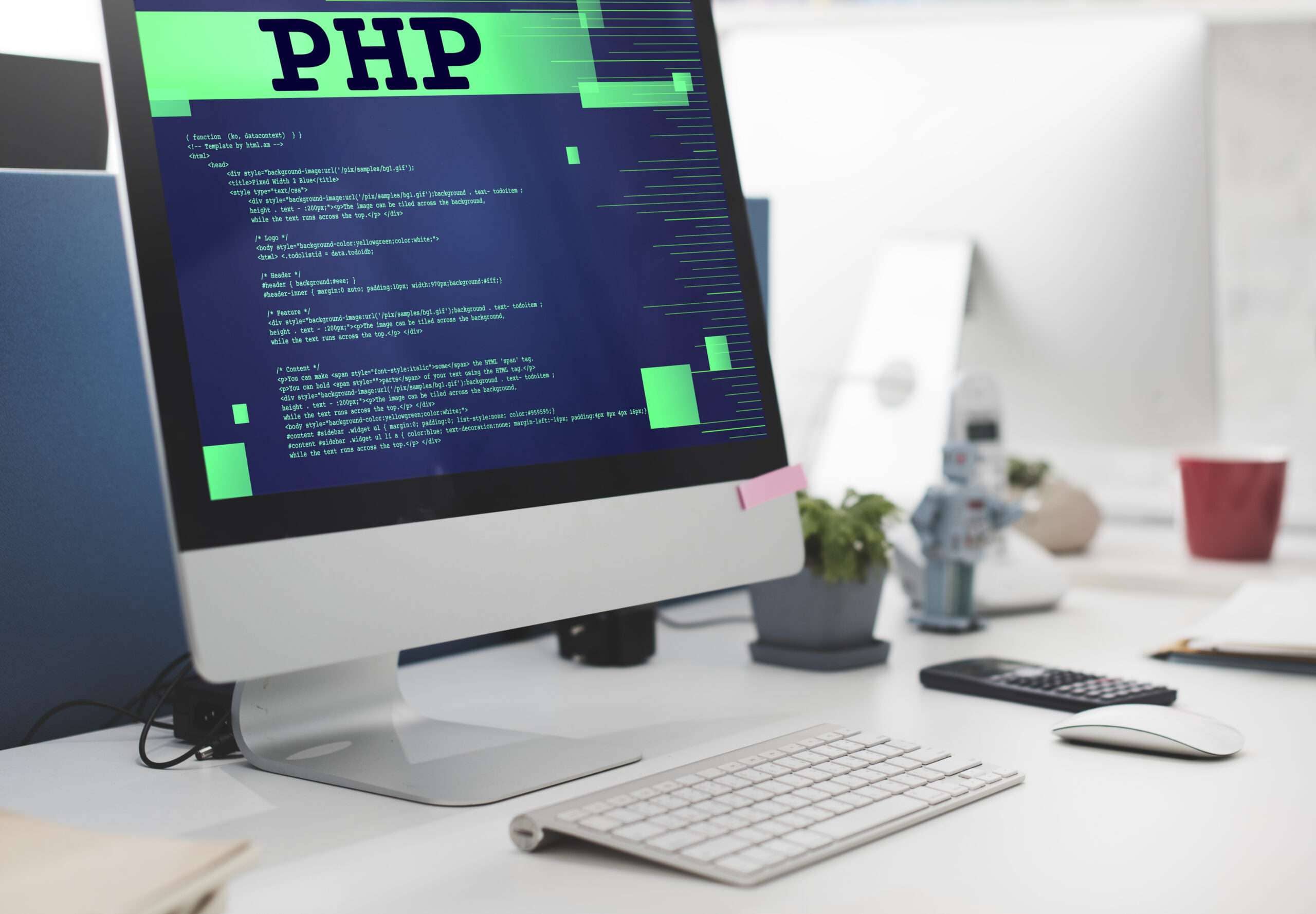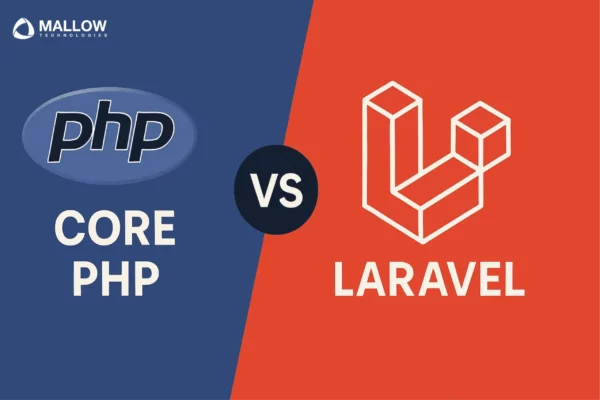Are you struggling to identify the root cause of frequent issues in your application? Are you concerned about the potential risks due to subpar code quality? Quite intimidating, isn’t it?
Addressing uncertainties and risks from the early stages of code development is essential to ensure the success and reliability of your application.
With over twelve years of experience as a custom software development company, we at Mallow have demonstrated our proficiency in assisting clients with Laravel application development across different domains. Our commitment to delivering exceptional results distinguishes us and keeps our clients returning for more.
After reading this article, you will gain a better understanding of the importance of validating the code quality of your Laravel application. Validating the code quality not only ensures that your application runs smoothly but also facilitates easier maintenance and future updates.
What does the code quality of your application mean?
The code quality of an application refers to the overall health and maintainability of its source code. It involves adhering to programming best practices, writing clean and understandable code, implementing proper coding standards, ensuring proper documentation, and using appropriate testing methodologies.
Why is it crucial to maintain the code quality of your application?
Good code quality helps to reduce technical debt, makes code maintenance easier, and helps to ensure the overall reliability of the application. High-quality code ensures the stability and maintainability of an application, reducing costs and inefficiencies in the long run.
The code quality of any web application is not solely determined by its framework (For example, Laravel, Ruby on Rails etc) used for its development; it is just one element of the larger picture. Although the choice of framework can influence certain aspects of code quality, it is ultimately the day-to-day development practices that have a more significant impact on the overall code quality.
The state of code review article from Smartbear states that Improving code quality is the top reason for using a code review tool. For more details on the highlights and trends in code review, check out this article from Smartbear.
Benefits of maintaining your application with good code quality
1.
Safeguard your application from potential threats
There are hackers out there looking to exploit vulnerabilities in the application and impose security attacks on software applications. Now, poorly written code allows hackers to gain unauthorised access to your application and steal critical user data. As a result, your company will lose customer trust, and there could be chances of financial losses as well.
During security audits conducted to assess the code quality of your application, several common problems frequently arise. One significant concern is the lack of proper input validation, leaving the application vulnerable to attacks such as SQL injection, cross-site scripting (XSS), and other forms of code injection.

Proper input validation and thorough authentication and authorisation mechanisms are essential pillars in fortifying your application’s defences. Investing in code quality not only mitigates security risks but also offers various other benefits. A well-structured and secure application fosters customer trust and confidence, enhancing your company’s reputation. Customers are more likely to trust a platform that prioritises their data security, leading to increased user retention and potential growth in the user base.
2.
Higher code reusability
Code quality promotes higher code reusability by making the codebase modular, well-organised, and easy to understand.
Some notable benefits of having the code reusable are
- Reusing existing code reduces development time and costs as developers don’t need to write the same code from scratch repeatedly.
- Reusing code promotes consistency across modules, ensuring that the same functionality behaves consistently across different parts of the application.
- Reused code is often well-tested and debugged, reducing the likelihood of introducing new bugs compared to writing entirely new code.
- Reusable code encourages a modular approach to development, where small, self-contained code units can be combined to create larger, complex applications.
- Reusable code is typically well-documented and follows established coding standards, making it easier for other developers to understand and use.
- Developers can quickly build new features by integrating the existing well-tested code components.
- By reusing code, developers can focus more on innovating and building unique features that differentiate the application.
3.
Elevate your application’s maintainability
Imagine you own a Laravel application that handles product inventory and orders. The application has a complex checkout process with multiple steps, each involving database interactions, calculations, and validation.
In the early stages of development, the code was hastily written without much consideration for maintainability. The checkout process was implemented in a single, monolithic function with unclear variable names and minimal documentation. Over time, the application has gained more users and requirements have evolved. Now the development team is finding it increasingly challenging to update and improve the checkout process.
The major challenge that the team would be facing is the complexity and fragility of the current monolithic checkout process. With all the checkout logic crammed into a single function, any changes or updates to the process could collapse the whole checkout process, contributing to it being risky and time-consuming. The lack of modularity and readability makes it more challenging for the development team to understand and maintain the code effectively.
To address this technical debt, you must refactor the checkout process to enhance maintainability. You need to break down the monolithic function into smaller, reusable methods, each responsible for a specific step of the checkout process. Also, you should consider using descriptive variable names and add detailed comments to explain the logic in each section.
This investment in code quality will continue to pay off by reducing the overall cost of your application development process and the rate of bugs that arise.
| Certitudes:A study conducted by CAST Research Labs found that Software maintainability is important because it is approximately 75% of the cost related to a project! For more details, check out this piece of information by CAST on their website. |
4.
Optimises performance
With good code quality, you can identify and eliminate performance bottlenecks promptly, leading to a smoother, faster, and more responsive application overall, meeting user expectations and enhancing customer satisfaction.
For instance, in a web application, well-structured and optimised code reduces page load times, leading to a better user experience. One critical aspect of optimising code performance is addressing the N+1 queries problem. This issue arises when an application executes N additional database queries to retrieve related data for each record fetched, leading to significant overhead in database requests.

By implementing efficient data retrieval techniques such as eager loading or using specialised database queries like JOINs, you can mitigate the N+1 queries problem. This optimisation minimises the number of database calls, reduces latency, and improves the application’s responsiveness and overall efficiency. Properly written database queries enhance data retrieval speed, resulting in faster response times.
Minimised code redundancy and optimised algorithms reduce processing overhead, making the application run faster and consume fewer server resources.
5.
Minimised bugs and issues
Emphasising code reusability and modularity not only enhances the overall efficiency and maintainability of a codebase but also significantly diminishes the occurrence of bugs and issues. When code components are designed to be reusable, they undergo rigorous testing and debugging, ensuring their reliability across various implementations and scenarios.

The modular approach allows developers to focus on specific functionalities independently, reducing the risk of introducing unintended side effects. As a result, a well-organised and reusable codebase provides a solid foundation for building, leading to a higher level of stability, consistency, and confidence in the software’s performance.
6.
Enhanced collaboration
When the codebase adheres to best practices and is well-structured, it becomes more accessible and understandable to all team members. Clean and readable code reduces the learning curve for new developers, allowing them to quickly grasp the project’s business logic and contribute effectively from the start.
7.
Reduced turnaround time
Good code quality offers significant support in reducing the turnaround time and speeding up the time to market. When the codebase is well-structured, maintainable, and adheres to best practices, developers can make changes and implement new features more swiftly and confidently. Building upon a solid foundation of clean code accelerates development cycles, enabling faster iterations and a shorter time to market for the application.
How to validate the code quality of my Laravel application.
Validating the code quality of your Laravel application is crucial to ensure security, stability, and maintainability. Validating the code quality of your application includes reviews by a team of expertise that identifies potential issues and adherence to coding standards, utilising automated code analysis tools, such as PHP_CodeSniffer or Laravel Pint, taking measures to enhance the security of your application etc. To carry out the validation process of your Laravel application’s code quality, check out our article on how to validate the code quality of your Laravel application.
Are you still unsure about what you should do next? Do you think we could assist you in improving the code quality of your Laravel application? Please contact our team.
Your queries, our answers
Yes, we can continue developing your existing Laravel application. Please provide the current project details so we can assess and proceed. For more details, get in touch with our team.
No, we focus on custom Laravel solutions tailored specifically to your needs. We do not offer pre-built, off-the-shelf products.
Yes, we develop Laravel applications for various domains, including e-commerce, healthcare, finance, and more.
The cost varies based on the project's complexity and scope. For a basic MVP, costs generally range from $20,000 to $40,000 for web apps and $10,000 to $25,000 for mobile apps. For more advanced applications, costs can be higher. We offer a detailed cost breakdown tailored to your specific needs. To know more, check out our article on How much does it cost to work on a Laravel project with Mallow? and discover how we can build a strong partnership together.
The timeline depends on the project's complexity. A basic project may take a few weeks, while more complex applications could take several months.
Yes, we can align our working hours with your time zone to facilitate effective communication throughout the development process. For more details on how you can handle timezone differences efficiently, do check out our article on how to handle timezone differences while working with an offshore development team.
Mallow offers the following outsourcing models: Project-based outsourcing, Staff augmentation, & Dedicated development team (DDT)
Yes, we offer maintenance and support services to ensure your Laravel application remains up-to-date and functional.
Yes, you will own the intellectual property rights of your Laravel application upon project completion. Check out our article on why owning intellectual property rights while outsourcing your application is important.
The cost is influenced by several factors including the complexity of the project, the number of features required, and whether the application is for web or mobile. We provide a personalized estimate based on your project details.
We work with the latest stable versions of Laravel and can also support older versions if needed based on your project requirements. For more details check out our article on Laravel upgrade: when and how to transition to the latest version
Yes, we offer post-deployment support to address any issues and provide updates as needed.
To hire a Laravel developer from Mallow, you can contact us with your project requirements. We'll discuss your needs, suggest suitable developers or teams, and provide you with a proposal. Once the terms are agreed upon, we can start the development process.
Yes, you can hire a dedicated Laravel developer or a team of developers from Mallow. This allows you to have a dedicated resource working exclusively on your project, providing more control and flexibility over the development process.
To hire the right laravel developer for your project, check out this article on tips to hire the right Laravel developer.
Author
Manivel
Manivel is the Chief Technology Officer (CTO) at Mallow Technologies, with over two decade of experience in the field of application development. His driving vision when co-founding Mallow was to empower businesses to unlock their potential through the strategic utilisation of technology. Over the years, he has solidified his reputation as a reliable technical partner and advisor to clients spanning various sectors. Manivel's unique proficiency in ideating and delivering customised application solutions has played a transformative role in facilitating the success of numerous enterprises amidst the ever-evolving digital landscape.



